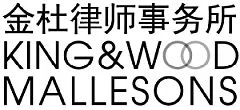- within Media, Telecoms, IT, Entertainment, Strategy, Litigation and Mediation & Arbitration topic(s)
- with Senior Company Executives, HR and Inhouse Counsel
- with readers working within the Healthcare, Media & Information and Retail & Leisure industries
The QQ / 360 battle broken out towards the end of 2010 (see our article entitled The QQ / 360 Disputes - Who, What, Where, When and Preliminary Antitrust Analysis") has stirred lasting and heated discussions about anti-monopoly issues in the emerging Internet industry in China.
About one month ago, Renmin University of China organized the thirteenth Anti-Monopoly Law Summit Forum, which was focused on discussion of fair competition in the Internet industry of China and protection of netizens' interests. Officials from various government agencies, such as the Law Committee of the National People's Congress, Legislative Affairs of the State Council, the Ministry of Industry and Information Technology ("MIIT"), the State of Administration for Industry and Commerce ("SAIC'), the Ministry of Commerce, and the National Development and Reform Commission, as well as judges from the Supreme People's Court participated in the forum..
Noticeably, at the forum, Mr. Jiang Tianbo, the Deputy Director
General of the Anti-monopoly and Anti-unfair Competition
Enforcement Bureau of SAIC1 , said that the
internet industry has become a "hot" area where a lot of
anti-monopoly complaints are raised.
According to Mr. Jiang, most of the complaints relating to the
Internet industry are against the following 4 types of
conducts:
- joint boycott of transactions;
- tying – such as tie-in sales of software with the operating system;
- disparaging competitor's reputation – such as disseminating information that the software of other Internet companies is not safe or contains virus;
- selling products at below-cost prices for the purpose of maintaining the market share.
In response to complaints on the absence of SAIC in the QQ / 360 case, Mr. Jiang expressed the determination of SAIC to strengthen its enforcement of the Anti-monopoly Law and Anti-unfair Competition Law in the Internet industry.
Comments
Commercial libel indicated by Mr. Jiang above is mainly regulated under the Anti-unfair Competition Law (AUCL), the enforcement of which also falls within the purview of SAIC. On the other hand, MIIT, the authority responsible for the administration of the Internet industry, may also have the privilege or intention to handle competition issues raised in the Internet industry. The recent Interim Rules for Supervision and Management of Internet Information Service Market (Draft for Comment) promulgated by MIIT contains similar regulations as the AUCL and the AML.2 It will be interesting to see whether and how the MIIT will work with SAIC to enforce the AUCL and/or AML in relation to competition issues in the Internet industry.
Furthermore, compared with traditional industries, the Internet industry may pose greater challenges to the competition authorities as it is one of the fastest changing industries and the economic theories for analyzing the behaviour of the businesses in the industry are more complicated and less well-established. On a global scale, we have seen leading Internet search engine firms challenged in major competition jurisdictions for abuse of market dominance. It remains to be uncovered how Chinese authorities will show their teeth towards potentially monopolistic conducts or unfair competition conducts of enterprises in this highly dynamic industry.
1 The Anti-monopoly and Anti-unfair Competition Enforcement Bureau of SAIC is the Anti-monopoly Law (AML) enforcement agency responsible for oversight of anti-monopoly enforcement of none-price related monopoly agreement and abuse of market dominance.
2Partly driven by the QQ-360 disputes, the MIIT released the Interim Rules for Supervision and Management of Internet Information Service Market (Draft for Comment), on 12 January 2011 (see our article entitled " style="text-decoration: underline;"> MIIT releases draft rules which govern antitrust issues").
The content of this article is intended to provide a general guide to the subject matter. Specialist advice should be sought about your specific circumstances.



